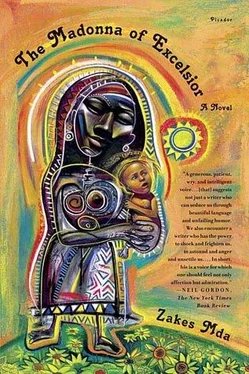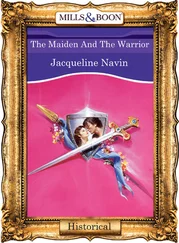“They nearly crucified me,” said de Vries, obviously enjoying the memory. “It was long before people like EW. de Klerk came onto the scene and released Mandela. In fact, in those days de Klerk was one of the right-wingers. I referred the delegates to the Bible and they could have eaten me alive. I told them that in the Bible the Lord often punished His people. He often used heathens to punish His people. ‘The Lord may punish us too,’ I said. ‘The Lord may use the Movement to punish us.’ ”
Viliki sat on a bench under a bold sign with the dictum: A customer is always right. Sometimes confused, misinformed, rude, stubborn, changeable and even downright stupid. But never wrong!!! And then a picture of a donkey sitting human-style on a stool.
Adam de Vries’s white-haired prim and proper secretary was typing something on a rickety typewriter at a small desk behind the long reception counter. After a while, she noticed him.
“You know that Mr de Vries is busy,” she said in her school-marmish voice. “You like to visit him during office hours. He is not idle like you town councillors, you know. He has clients to attend to.”
“I’ll wait until he’s free,” said Viliki, raising his voice so that it would sneak into Adam de Vries’s office.
“Is that Viliki?” shouted Adam de Vries from his office. “Tell him I’ll be with him just now.”
Viliki contemplated the portrait on the wall. The old codger was stern-faced. And pensive. Yet Viliki imagined him bursting into laughter. A long self-fulfilled laughter. Until tears ran down the furrows of his salty face. A laughter of sorrow. But the ancestor remained unmoved. And stared as he had been staring over the years.
A young Afrikaner woman in blue denim jeans and her son of about four, walked out of Adam de Vries’s office. She greeted Viliki in the polite singsong voice of Basotho women, “Dumelang.” Viliki responded, “Dumela le wena, mme.” Greetings to you too, mother.
In Sesotho, every woman is “mother”. Even when she is younger than your younger sister.
“You can come in now, Viliki,” shouted Adam de Vries.
Viliki looked at the schoolmarm and gave her a triumphant smirk. She frowned and went back to pounding the keys of the old Remington typewriter. He walked into the office. Adam de Vries pointed him to a chair.
“Divorce,” he said. “I don’t know what is happening with young people these days. They marry today, and the next day they part. I hate handling divorce cases, especially when the custody of children is involved.”
“I thought lawyers didn’t get their personal feelings mixed up with business,” said Viliki.
“Lawyers are human beings too.”
“Lawyers have no scruples, Meneer. They defend anyone who can pay.”
“A person is innocent until proven guilty by a court of law, Viliki,” explained Adam de Vries. “When a lawyer takes your case, at that stage you are innocent. Only a court of law can determine otherwise. And it does so only after the case.”
Viliki had no answer for this. Somehow it did not sound right. But Adam de Vries had a way of twisting things so that he did not know how to respond. He decided to be wicked. To provoke him about his professed role in the anti-apartheid struggle.
“Hey Meneer, at your congress in Marquard so many years ago, what made you suggest that your people should negotiate with the heathens?”
“I was merely quoting the Bible when I talked of heathens,” said Adam de Vries defensively. “You are not going to take me to the Human Rights Commission for racism, are you?”
“Well,” said Viliki light-heartedly, “I can call them heathens too as they kicked me out of my own Movement. But what I want to know is, what created your doubts about apartheid?”
“I think they had their genesis in the Immorality Act case of 1971,” said Adam de Vries. “I began to question some of our laws.”
Adam de Vries had boasted about his old cases to Viliki before. Including the case of the Excelsior 19. And Viliki did not mind when this case was discussed, even though his mother had been one of the accused. He even joked that had it not been for the capers of those days, he would not have had a sister as beautiful as Popi.
It was obvious to Viliki that Adam de Vries was a bored man. He looked back with nostalgia to the days when he handled some of the most exciting cases of Excelsior. Today most of his business involved what he called chamber work, drawing up wills and transfer deeds. A little bit of conveyancing here; a little bit of notarial work there. Once in a while, the odd divorce case, for which he normally briefed advocates in Bloemfontein. The days of courtroom drama were gone. He could only relive them in his stories to Viliki.
“Yes, that was the greatest case of all time,” said Adam de Vries. “But I tell you, Viliki, those women were bribed to frame the white men.”
“And I suppose their children made themselves,” said Viliki, without any enthusiasm. He had heard this version of the Excelsior 19 case so many times that he was prepared to let it pass.
“But I tell you, we were ready for them,” continued Adam de Vries, ignoring Viliki’s comment. “We were going to win that case. It was going to be very bad for the country. That was why John Vorster instructed Percy Yutar to withdraw the case.”
“You say as a result of this case, you began to question your laws,” said Viliki, “but you remained in the party for the next thirty years. Why?”
“To change it from within. People like de Klerk and I changed the National Party from within. That is why today the National Party is the party that brought about the new dispensation in South Africa.”
Viliki laughed for a long time. Until Adam de Vries got irritated.
“So it’s really you who brought us this freedom we are enjoying today?” asked Viliki, still laughing. “All this time we thought it was the Movement and the other organisations. What were we doing fighting for freedom in the underground when you and de Klerk were here all along to free us?”
“Listen,” said Adam de Vries, not bothering to hide his annoyance, “I am busy. I cannot sit here all day listening to your idle talk. Don’t you have any work to do at the council?”
“You know, Meneer,” said Viliki as he made to go, “these days it is very difficult to find a white person who ever supported apartheid.”
We watched Viliki walk out of Adam de Vries’s office. We knew that whenever he was bored, whenever he had had his fill of the Seller of Songs’ music that tingled in his veins, making his body hot to the point of explosion, he sauntered off to Adam de Vries’s office in town. We wondered what it was that had drawn these two together. At least Popi and Lizette de Vries were drawn together by their work. But Viliki and Adam de Vries?
When the inquisitive quizzed him about it, Viliki would only say, “He is a nice guy, although a white man will always be a white man.”
The likes of Tjaart Cronje and Johannes Smit said that Adam de Vries was Viliki’s puppet. It was not enough that his party had sold out the Afrikaner; Adam de Vries was now dancing to the tune of the blacks who were taking the country down the sewer. Otherwise what would an Afrikaner lawyer have in common with an unschooled township boy?
The people of the Movement said de Vries was the puppeteer and Viliki the puppet. The Pule Siblings no longer represented the interests of the people of Mahlatswetsa Location in the council chamber, but those of the rich Afrikaners of Excelsior.
We, on the other hand, were not bothered by these friendships. We put them down to the old love affair between black people and Afrikaners that the English found so irritating. Even at the height of apartheid, blacks preferred dealing with Afrikaners to the English-speaking South Africans. The English, common wisdom stated, were hypocrites. They laughed with you, but immediately you turned, they stabbed you in the back. The Afrikaner, on the other hand, was honest. When he hated you, he showed you at once. He did not pretend to like you. If he hated blacks, he said so publicly. So, when you dealt with him, you knew who you were dealing with. When he smiled, you knew he was genuine. One could never trust the smile of an Englishman.
Читать дальше












